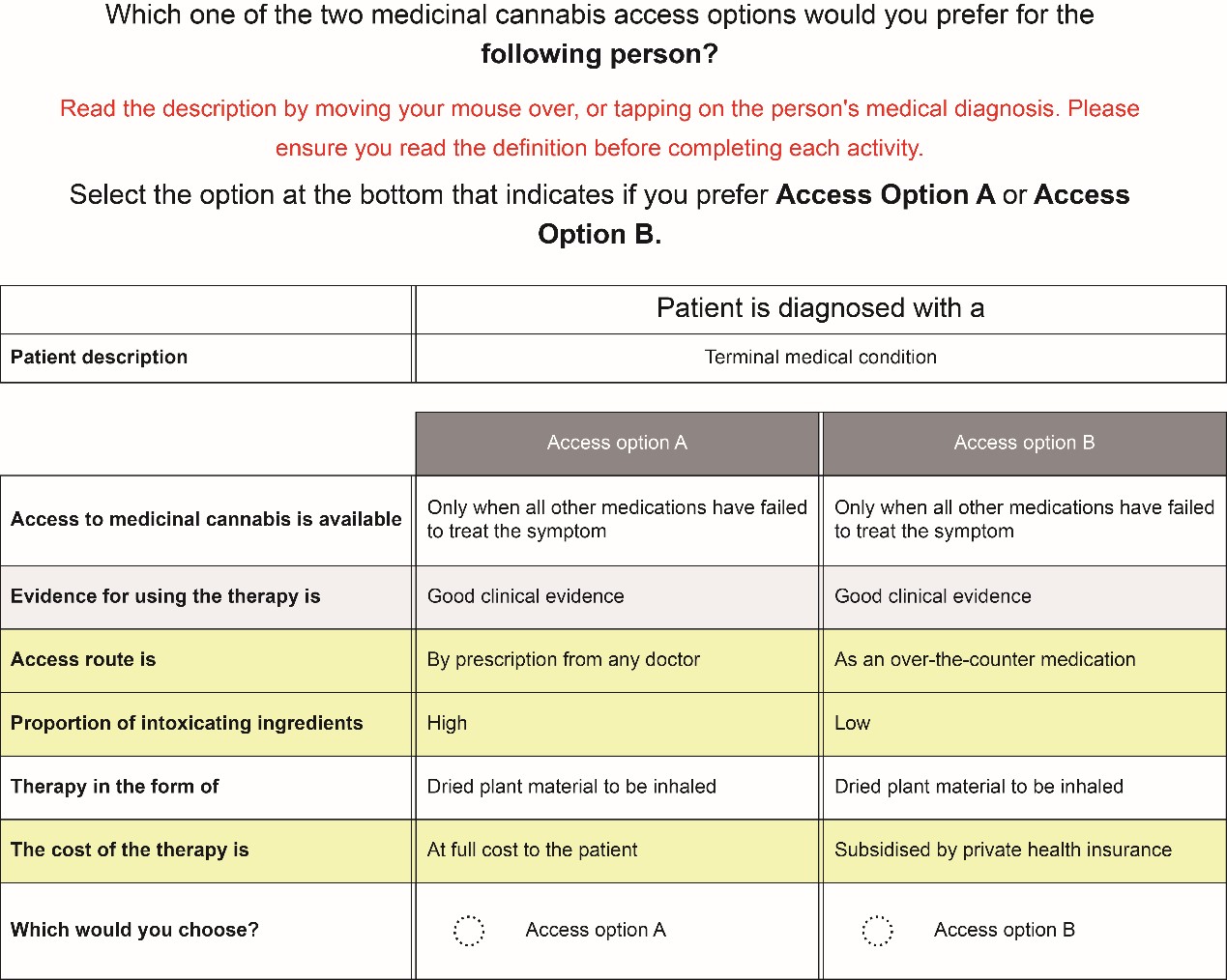Discrete choice experiment on Australian public preferences for provision of medicinal cannabis
Published 28 August, 2025
A new study published in Pharmacoeconomics and Policy has shed light on how Australians want medicinal cannabis (MC) to be provided. Using a discrete choice experiment with 1,166 adults, the authors examined preferences for access, formulation, tetrahydrocannabinol (THC) content, cost, and medical oversight.
“We found that the public is likely to be more open to medicinal cannabis as a complementary option rather than a last resort,” shares first author Katrina Gething.
The authors also found strong support for MC being prescribed at any stage of treatment when good clinical evidence exists, instead of restricting it to cases where other treatments fail. “Most participants preferred oral formulations, such as liquids or capsules, over inhalation of raw cannabis flowers,” adds Gething. “Lower THC levels were generally favored, although there was flexibility for higher levels in terminal cases.”
In particular, cost was a significant factor, with many respondents advocating for government subsidies to ease financial burdens. “Affordability came through as a critical issue, especially among older participants and women,” notes Gething.
Furthermore, while a majority valued medical supervision in prescribing MC, a substantial subgroup was neutral on this requirement. “Demographics such as age and gender influenced preferences, with older individuals and females more likely to support subsidies and structured access,” says Gething.
Taken together, the findings suggest that current Australian policies, often more restrictive, may not align with public sentiment. The authors recommend adjusting regulations to broaden access, incorporate preferred administration methods, and reduce costs could better meet community needs.

Contact author:
Katrina Gething, Centre for Applied Health Economics, School of Medicine, Griffith University, Nathan, Australia
Funder:
This study was funded through a National Health and Medical Research Council Centre for Research Excellence grant, Australia (Grant No.: 1135054), and National Health and Medical Research Council Senior Research Fellowship grant, Australia (Grant No.: 1136923).
Conflict of interest:
The authors declare that there are no conflicts of interest.
See the article: